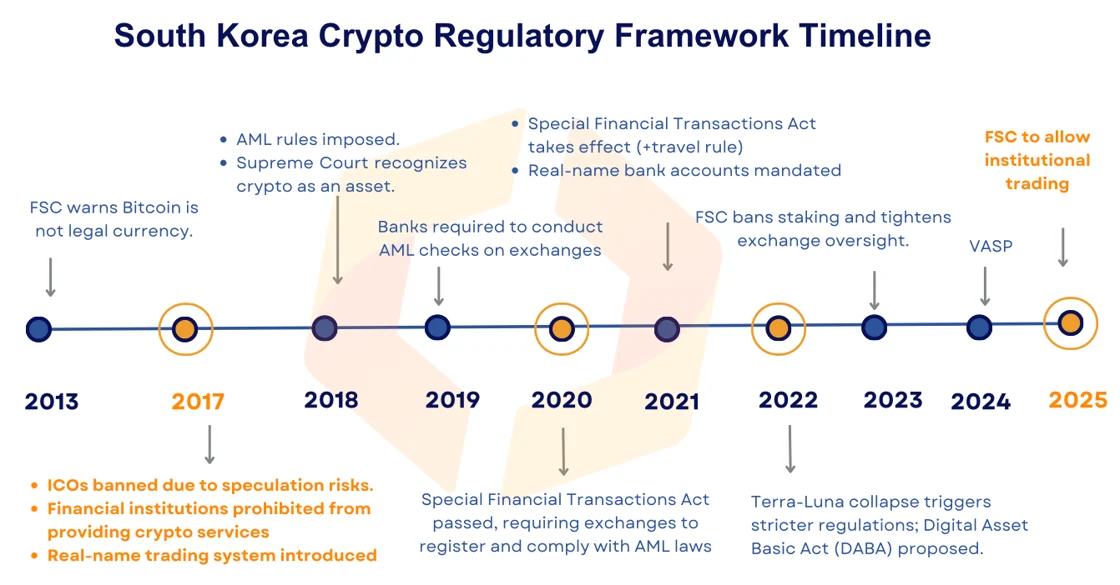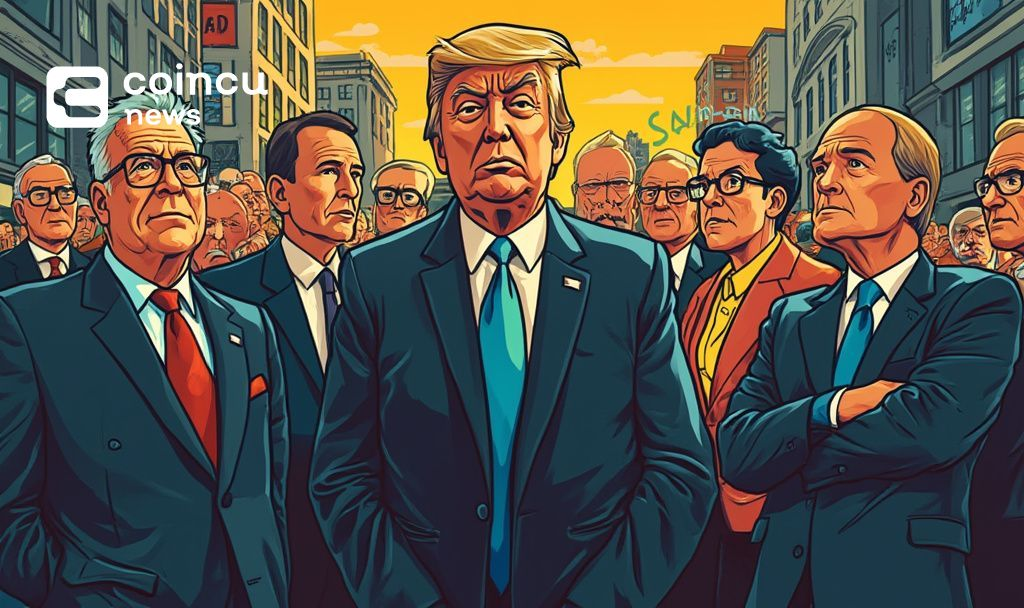South Korea Ends Years-Long Ban on Institutional Crypto Trading: 2025 Target

- South Korea to lift its ban on institutional crypto trading from 2025
- Phased rollout to allow non-profits, universities, and listed companies to trade crypto
- South Korea looking to support blockchain businesses with clearer regulations
South Korea is set to lift its ban on institutional crypto trading. Through 2025, a number of institutions, such as non-profits, universities, law enforcement agencies, and listed companies, will gain permission to trade crypto assets like Bitcoin and Ethereum.
This move follows years of strict rules aimed at controlling speculation and managing money laundering risks in the crypto market
South Korea’s government has long had strict regulations on crypto trading. In 2017, the Financial Services Commission (FSC) banned Initial Coin Offerings (ICOs) due to concerns over speculative investments.
This was followed by a ban on financial institutions offering crypto services and the start of a real-name trading system to ensure transaction accountability. By 2018, Anti-Money Laundering (AML) regulations were put in place, setting the stage for more detailed oversight of crypto activities.

AML Checks and the …
The post South Korea Ends Years-Long Ban on Institutional Crypto Trading: 2025 Target appeared first on Coin Edition.
Read More

Wall Street’s Confidence in Trump’s Economic Policies Wavers
South Korea Ends Years-Long Ban on Institutional Crypto Trading: 2025 Target

- South Korea to lift its ban on institutional crypto trading from 2025
- Phased rollout to allow non-profits, universities, and listed companies to trade crypto
- South Korea looking to support blockchain businesses with clearer regulations
South Korea is set to lift its ban on institutional crypto trading. Through 2025, a number of institutions, such as non-profits, universities, law enforcement agencies, and listed companies, will gain permission to trade crypto assets like Bitcoin and Ethereum.
This move follows years of strict rules aimed at controlling speculation and managing money laundering risks in the crypto market
South Korea’s government has long had strict regulations on crypto trading. In 2017, the Financial Services Commission (FSC) banned Initial Coin Offerings (ICOs) due to concerns over speculative investments.
This was followed by a ban on financial institutions offering crypto services and the start of a real-name trading system to ensure transaction accountability. By 2018, Anti-Money Laundering (AML) regulations were put in place, setting the stage for more detailed oversight of crypto activities.

AML Checks and the …
The post South Korea Ends Years-Long Ban on Institutional Crypto Trading: 2025 Target appeared first on Coin Edition.
Read More

